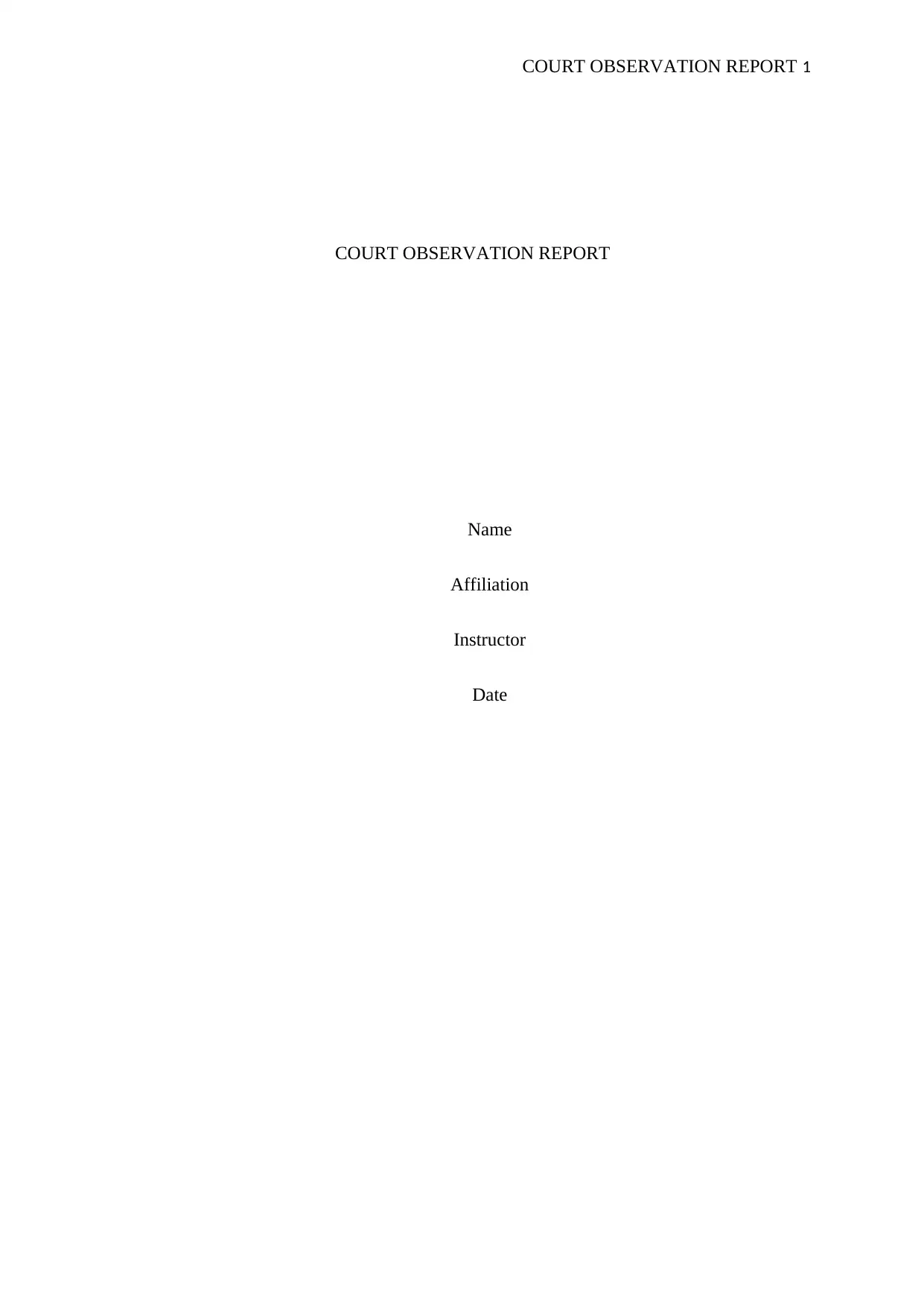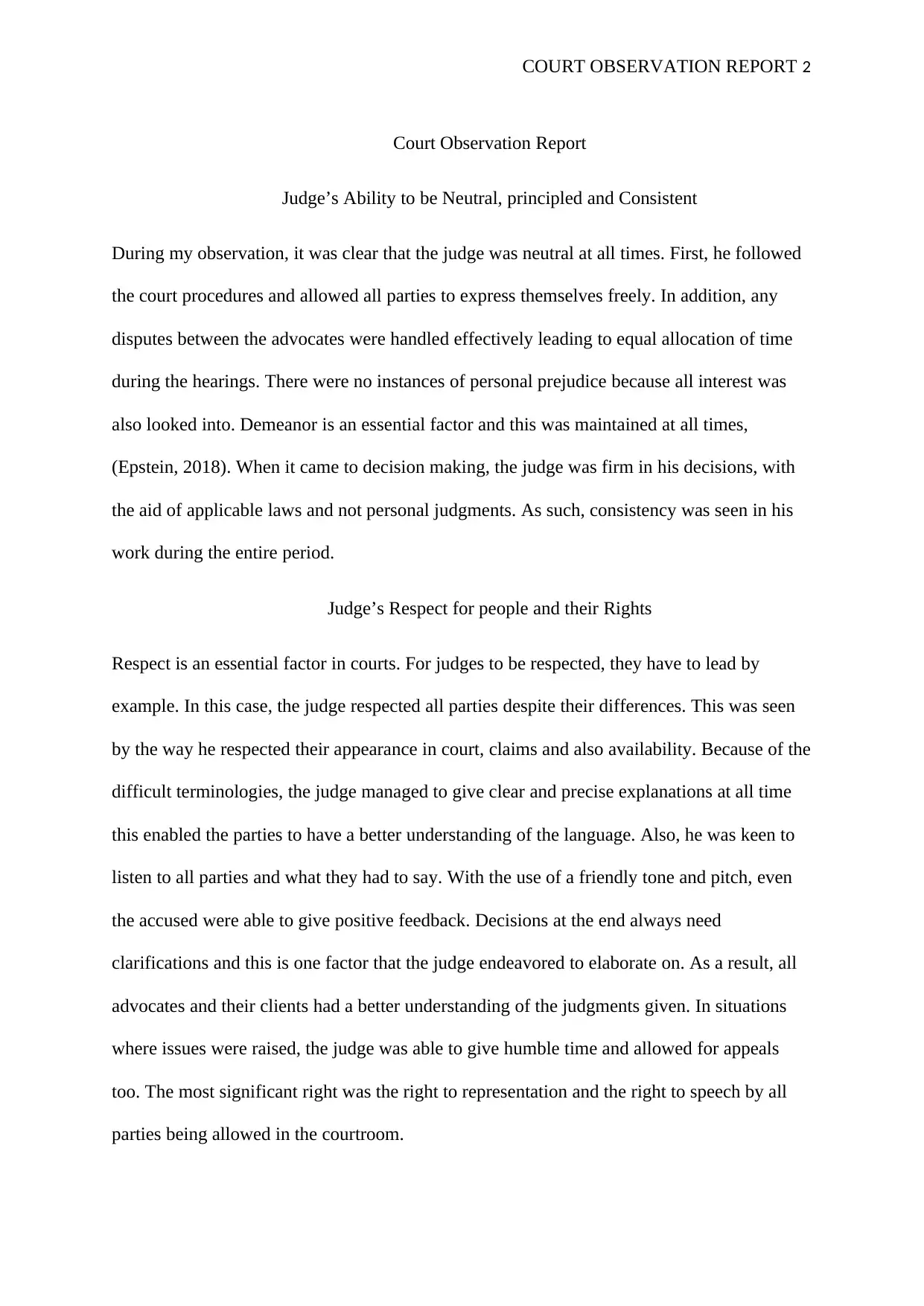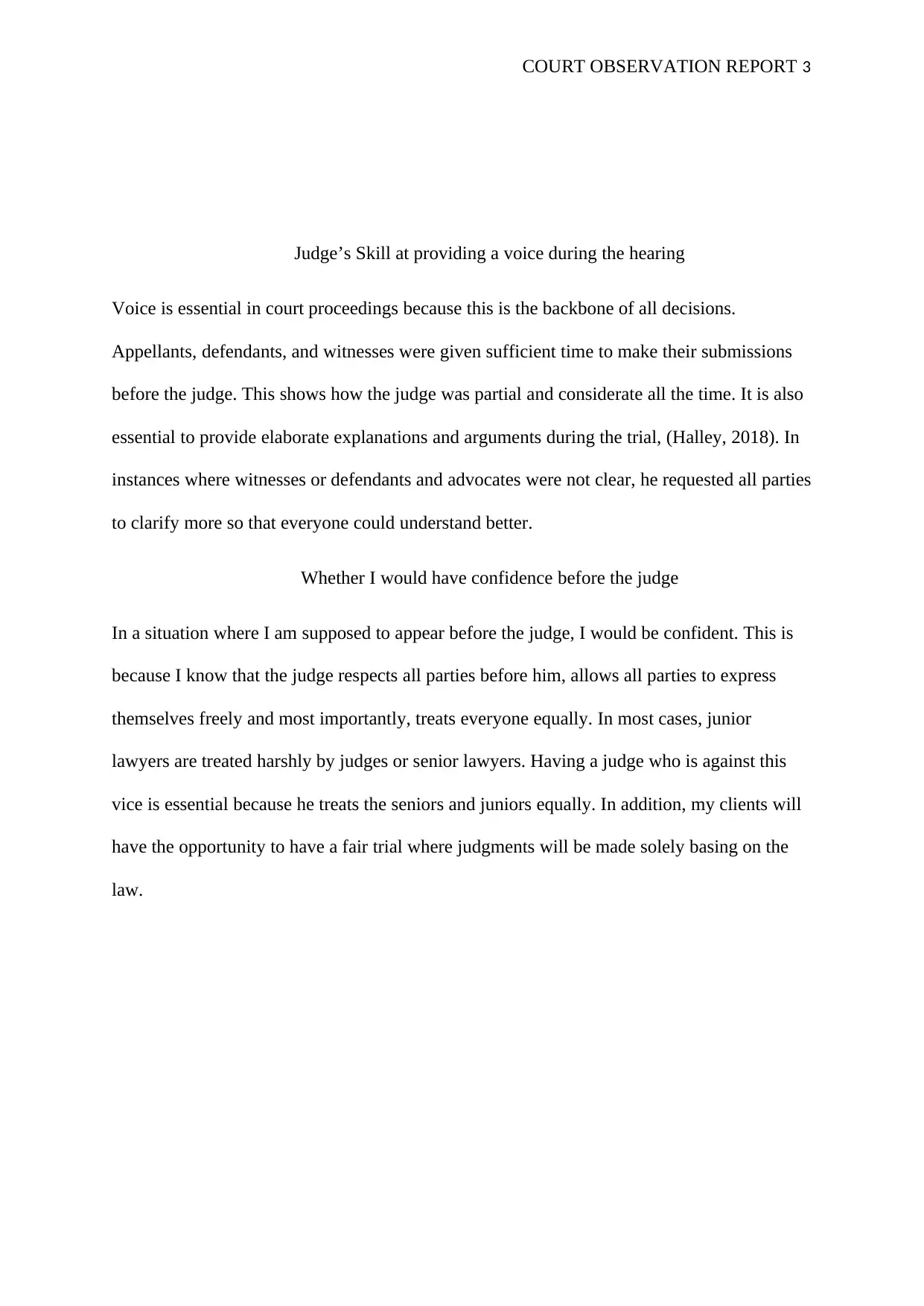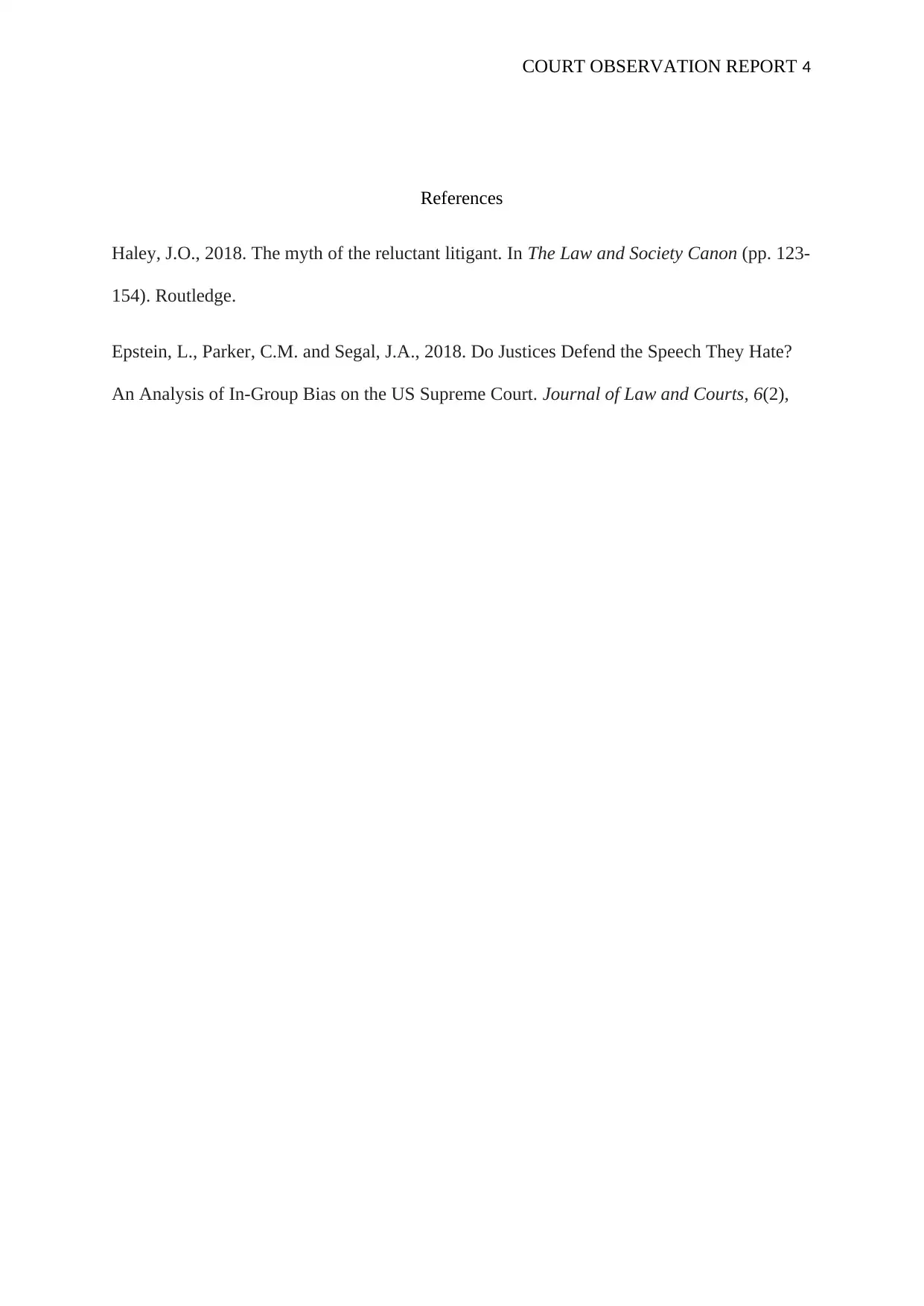University Court Observation Report for Business Law 101 Assessment
VerifiedAdded on 2023/06/10
|4
|665
|53
Report
AI Summary
This court observation report analyzes a specific court session, focusing on the judge's conduct and adherence to legal principles. The report evaluates the judge's neutrality, consistency, and respect for all parties involved, as well as their ability to provide a voice during the hearing. The judge's demeanor, handling of disputes, and decision-making processes are examined to assess their commitment to procedural fairness. The report highlights instances where the judge demonstrated impartiality, provided clear explanations, and ensured all parties had a fair opportunity to be heard. The judge's respect for people and their rights, including the right to representation and speech, is also evaluated. The report concludes with an assessment of the observer's confidence in the judge's ability to conduct a fair trial, emphasizing the importance of equal treatment and the application of law in decision-making.
1 out of 4







![Business Law Courtroom Observation Report - [University Name]](/_next/image/?url=https%3A%2F%2Fdesklib.com%2Fmedia%2Fimages%2Fat%2F18a9b662a0f841928b726145cc156ea0.jpg&w=256&q=75)

![[object Object]](/_next/static/media/star-bottom.7253800d.svg)